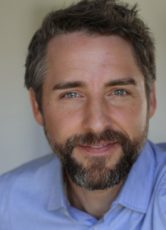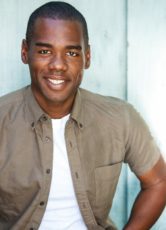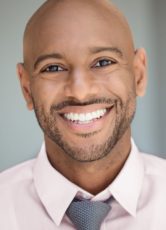
Whether it be an in-person or virtual audition, the objectives remain consistent. Exhibiting professionalism, flexibility, and a positive attitude, for instance, are among the essential qualities needed in both formats as these qualities demonstrate an actor is hirable. At commercial callbacks, any number of professionals can be present alongside the casting director—executives, producers, directors, and agency representatives—with each individual having a unique approach to interacting with the talent. Some want to keep things brief and strictly business, whereas others choose to chat with performers in hopes of creating a more relaxed environment. Some are straightforward; others might give a performer some sort of a test. Here is a collection of industry professionals who share some insights into their thought processes when selecting talent, including helpful dos and don’ts.
Some practical Don’ts
First off, at an ATX Television Festival panel, “Seinfeld” and “Married with Children” casting director Marc Hirschfeld spelled out some audition-room don’ts: No props, no inappropriate or distracting clothing, and no adjusting of clothing while reading for a role. Hirschfeld has seen plenty of actors audition with improper attire and intrusive props and actions, and he says these practices detract from what’s most important—the actor’s performance.
Don’t wear perfume or cologne.
“Funny or Die Presents” host and actor Steve Tom says the most valuable thing that ever happened to him in the business was being able to sit in on a casting session and observe the decision makers’ comments and concerns after talent left the room. A lesson he learned years ago was to stay clear of strong scents when auditioning in person. “Ditch the perfume and the cologne … casting directors were complaining because people were bathing in perfume and cologne and coming into the room, and after a bunch of people paraded in and out, it was just overwhelming and a lot of people have allergies to that. So take a shower with soap and don’t put anything on after that. It’s much nicer for everybody involved.”
Don’t play it too big.
When it comes to commercial acting auditions, Canadian casting director Steven Mann of Mann Casting urges actors to keep their performances as natural as possible. “A lot of people, when it comes to commercials, they put a little too much into it. I find that people come in here and over-act and go really big. And I always say to people, ‘Watch the commercials, and just be yourself. Tap into that energy when you’re hanging out with your friends, you’re on a patio having a glass of wine or cold beer and people gravitate towards you’ … everything should be subtle. People feel this need to go big, and it’ll turn a director off. It’s easier to bring you up than it is to bring you down.”
Don’t make your audition the only focus of your day.
Actress and author of “A Survivors’ Guide to Hollywood: How to Play the Game Without Losing Your Soul,” Robin Riker says, “Before you go out on an audition, you should be as prepared as you can possibly be. But for yourself, (this is not so much for the audition but for the person) go somewhere in public before you go to the audition. Because you are a human who is trying to display emotions, and if you make this audition the most important thing of your day: ‘I’m getting ready for this; I can’t do anything before this. I have to do this, this is it, the focus, the focus, the focus!’ then you get in the room and you’re not limber. So I always try to go and have a cup of coffee or pick up my dry-cleaning or chat with somebody, go get something from the market, do something so I’m limber, and I’ve had a conversation with someone before I’m having my first conversation with you, the casting director, who holds my future in your hands.”
And after the audition is over, she advises actors to go somewhere as a reward, something fun. “If you’ve made the audition or the interview the most important moment of your day, then you’re very likely to feel this huge letdown at the end of it or this artificial sort of stiffness at the beginning because you haven’t been a person [naturally interacting in the world].”
Don’t expect feedback on your audition.
Steve Tom says, “Do you want to harangue your agent about feedback? ‘Can you call the casting office and please get feedback? Please, I want to hear feedback on my audition. How did I do?’ The feedback is whether or not you booked the job. And that is not necessarily negative feedback.
Do keep it brief.
When it comes to auditions, Hirschfeld encourages talent to keep the interaction brief. After reading for the part, he advises, “Get out gracefully and quickly so we can talk about you!”
“Atlanta” and “True Detective” casting director Alexa L. Fogel added that actors should act like they’re a guest at a party, advising, “Be polite, don’t be overly familiar, do your job, then leave … It’s really just about the work.”
Steve Tom likewise advises, “Leave quickly. There’ve been times when I stayed in the room too long and been a little too chatty. I thought, well, the longer I stay in here, the more they’re going to get to know who the real me is, and they’re not going to be able to resist me and—No. Now I would much rather have them want me to come back into the room. I want to leave them wanting a little bit more. So I go in, I do my work, I say thank you, and I leave quickly, and I close the door behind me. And if they want me to come back before I’m at the car, they’ll come get me.”
Do be ready to engage when prompted.
Indeed, some casting directors prefer to chat a little to get a better sense of an actor and to set the talent at ease. Marta Kauffman is an award-winning writer and producer known for her work on “Friends” and “Grace and Frankie.” She likes to refer to a performers’ special skills listed on their resumes to make a connection. “Come on, you get some great stuff in there! It’s amazing—banjo playing, tap dancing, equestrians who also ride a unicycle. But what’s great about it is you can read them—and there’s always something interesting in them—and it can always put an actor at ease because you can say, ‘Did you really ride a unicycle? What’s that like? And they talk for a moment and you go into the audition and everybody’s now a human being.”
Do maintain a professional attitude and be flexible.
Television director, producer, and writer Paris Barclay revealed one of his rules when selecting talent. Barclay has directed countless TV hits including “The West Wing,” “Law & Order,” “Glee,” “Empire,” and “Scandal.” He insists, “I have a Life’s-Too-Short Rule. I don’t care how good an actor is, if that actor is going to make me miserable, it’s not going to happen.”
The director elaborated on how he sifts the wheat from the chaff, saying, “Just having live auditions, you can kind of tell within just a few seconds when someone comes in a room what their attitude is and how they respond. And that’s why I want to see them, because I want to give them some direction. And a lot of times, it’s wrong direction, and I give them deliberately wrong direction for the scene because I want to see what they do.” Barclay described the various ways actors respond to his purposefully faulty direction. Some go with it in the spirit of play and cooperation, saying, “Let me try that.” “That’s the actor that I want,” Barclay asserts. On the other hand, other actors resist the direction, if not argue. In these instances, Barclay has clarity: “I say, ‘Oh, you just lost a job!’”
Do be humble.
Mann has some tough-love advice for actors: “Every actor is replaceable. And that’s really the truth. Everybody is replaceable. Stay humble. Always be humble. Carry yourself properly. There’s so much arrogance and cockiness in our industry.” But he’s quick to emphasize the symbiotic relationship between casting directors and actors. He says, “Casting directors—we need you just as much as you need us. There are people who are afraid to come and talk to us, but it’s crazy. We’re all in this together.”
Kauffman urges actors to understand that casting directors are their advocates. Generally speaking, she believes casting directors are underappreciated. “I would say particularly—and this is going to feel ironic—by actors … I think actors believe they did it all on their own. And they don’t realize that they have someone fighting for them, bringing them in, mentioning them to names that you might never ever ever have thought of.”
Do keep a perspective.
Fogel shared how she always considers an actor’s whole body of work rather than simply what’s a best fit for the part at hand. If an actor is not suited for one particular role, she files away the memory for future audition opportunities. “That good audition when you don’t get the role is still serving a purpose because this is a long game,” she told The Ringer.
On a similar note, Mann believes that fun plays an essential role in sustaining actors over the long run especially since it’s such a highly competitive industry. “We’re dealing in a volume business now. Everybody seems to want to be an actor. Everybody wants to get into this business, which is crazy. And I always say it should be fun. If it’s not fun, then you shouldn’t be doing it,” he says. It’s key for actors to both take their work seriously and, at the same time, be able to maintain a sense of play. “Be realistic. There’s people who put so much pressure on themselves. Some people just try too hard,” he says. And he advises actors, “Once you leave, you leave everything in that room. Don’t carry it, don’t worry about it. Don’t worry, ‘Am I going to get [the part]?’ Chances are you’re not. And if you do, it’s a bonus.”
Don’t take things personally.
Steve Tom remembers from his experiences with sitting with commercial casting professionals: “Ninety-nine point nine percent of the time, the decision not to hire an actor had nothing to do with the actor—nothing. Particularly in commercials. It has to do with issues of diversity, it has to do with height, or color of hair, mixing and matching different actors to achieve the goal of the client that must be served … before anything else. These decisions don’t have anything to do with the actor necessarily, most of the time. And it should never be taken personally, ever. It’s hard to understand that unless you do get that opportunity to sit in on a casting session on the casting director’s side and hear the conversations after the actors have left the room, to hear what they actually talk about.”




